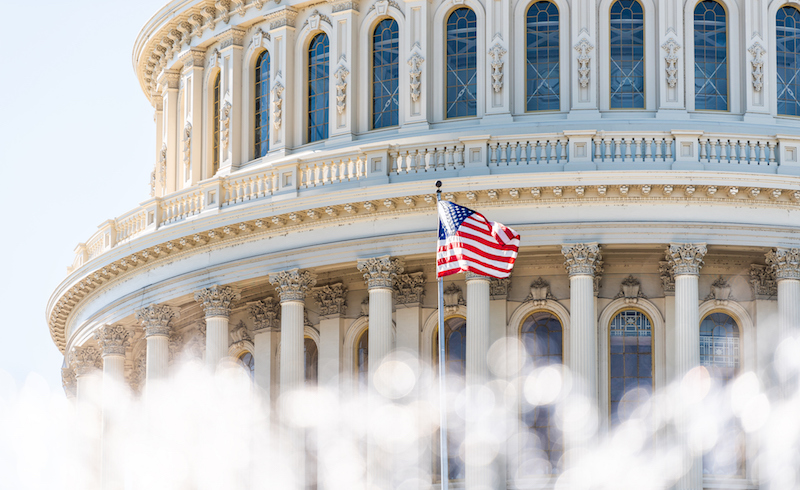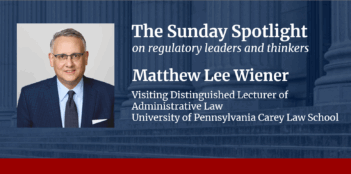
Scholar points to potential challenges facing congressional investigations into the executive branch.
Special Counsel Robert S. Mueller’s investigation into Russian interference in the 2016 presidential election has officially ended. But that does not mean the Trump Administration’s days of being investigated are over.
Ever since Democrats seized control of the U.S. House of Representatives in the 2018 midterm elections, congressional leaders have called for their own investigations into executive branch officials and policies. But what does a good investigation look like? And how can lawmakers best use their investigative powers?
In a recent report for the Brookings Institution, Paul C. Light of New York University’s Wagner Graduate School of Public Service looks to history to identify the elements of an effective congressional investigation. He argues that the key to investigative success lies in good process—particularly making sure that investigations are properly resourced, staffed, and coordinated.
Today, particularly in the current hyperpartisan political climate, many of the investigations that Democrats envision undertaking will face major challenges, Light writes.
The stakes for congressional investigations are high. “Done well, investigations give both Congress and the president an opportunity to strengthen accountability and improve government performance,” Light notes. “Done poorly, they weaken faithful execution of the laws and increase public distrust.”
Light documented and analyzed the 100 most significant congressional investigations between 1945 and 2012—including House, Senate, and Blue Ribbon investigations. He also reviewed investigatory records and conducted interviews with nearly 100 experts in the field of government investigations.
Based on his research, Light observes that congressional investigations historically tend to not be very effective. Between 1945 and 2012, only five of the 31 House investigations—less than 20 percent— had a “very significant” impact, according to Light. He defines very significant impact as having led to some formal administrative action or the implementation of new legislation.
This pattern emerged even as the range of topics covered by House investigations has expanded, particularly after the Watergate scandal of the early 1970s. In response, the House developed new offices and resources specifically to fulfill its investigative role, and it passed legislation that established Inspector General Offices across multiple administrative agencies.
Light makes two predictions about the forthcoming House investigations into the Trump Administration.
First, Light predicts that the House will conduct multiple “fire-alarm investigations” that address the most monumental administrative failures, such as the family separation policy at the southern border, the Administration’s decisions to undercut the Affordable Care Act, and the lack of enforcement of environmental regulations.
In addition, Light notes that the Trump Administration faces a number of corruption scandals—such as those surrounding former cabinet secretaries Tom Price, Scott Pruitt, and Ryan Zinke—which will likely generate additional fire-alarm investigations.
Fire-alarm investigations contrast with those that result from the standard, ongoing “police-patrol” oversight that the House conducts through the budget appropriations and authorization process. Each time the House deliberates whether to authorize administrative agency spending, Light writes, it engages in this type of routine oversight.
Second, Light predicts that House investigations will largely take the form of “who-done-it?” endeavors, focusing on attributing blame to individuals rather than fact-finding and investigating systemic breakdowns. As evidence of these blame-setting priorities, Light points to the breadth of the House Committee on Oversight and Reform’s recent document requests to the executive branch—which cover, among other things, officials’ use of government airplanes for personal travel, possible violations of the Presidential Records Act, and improper security clearances.
But Light warns that the temptation to respond to fire alarms and place blame on individual government officials could reduce the effectiveness of House Democrats’ investigations.
Of the 100 investigations Light reviewed, police-patrol investigations were three times more likely to have an impact as fire-alarm investigations. For this reason, Light suggests that, to maximize impact, congressional leaders focus more on performing police-patrol oversight. He also recommends that House Democrats prioritize fact-finding investigations over blame-setting investigations, because the former have historically been twice as likely to generate an impact.
Light also highlights several features of a successful investigation. For instance, an effective investigation is long enough to reach a conclusion, but not unnecessarily extended. It is also bipartisan, sufficiently broad, and can follow all leads that are uncovered during the investigative process.
Strong leadership is also crucial for a successful investigation, Light notes. House chairs must conduct investigations in a way that captures public interest while also carefully setting priorities and creating leverage so that their findings will be ultimately adopted in the form of legislation.
Planning individual investigations with these features will not be enough. Light argues that investigatory committees should group together investigations of government failures that have similar root causes. Doing so, he notes, will help strengthen the proposed legislative fixes that the committees ultimately recommend. Light also calls on each House committee to begin assessing the risk of government breakdowns as part of their routine police-patrol oversight to prevent the need for highly visible fire alarm investigations down the road.
Although increased fact-finding police patrols might reduce the number of “perp walks” and dramatic congressional hearings that capture the public’s attention, Light concludes that they will ultimately make for better investigations.



